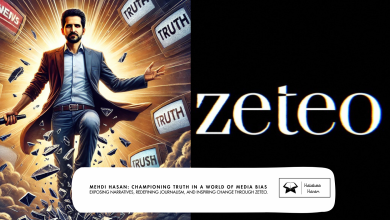True leadership lies in action, empathy, and a commitment to humanity, not just words and pageantry.
A Kingdom of Action, Not Just Words: Learning from the Legacy of True Leadership
As the floodwaters ravaged Spain, a call for genuine, grounded leadership echoed across the continent. In the aftermath of disaster, we saw hollow displays of condolence, symbolic gestures devoid of tangible relief. When Spain cried out in desperation, what it received was mere pageantry words on paper, politicians in rain gear and a sympathetic hand on the shoulder. But no real relief came from those in power. What if we drew lessons from history’s greatest leaders, whose strength lay not just in rhetoric but in action, empathy, and holistic understanding?
Prophet Muhammad’s life and teachings (pbuh), which serve as a model to many Muslims of today regardless of religious affiliations, may provide us with a wealth of information about the tasks that a leader is supposed to fulfil during times of sadness. Muhammad (pbuh) was a statesman, military tactician, reformer, and advocate for people’s welfare. He was committed to the well-being of his community. Despite the fact that he did not shy away from making challenging decisions, he also did not seek refuge in the relative safety that comes with authority. His leadership model was deeply rooted in service, direct involvement, and empathy qualities we should expect from those in high places today.
In a world where billions are quickly allocated to the machinery of war, it’s fair to ask: where is this urgency when we face natural calamities like Spain’s recent floods? Why is it that governments can so swiftly mobilise resources to fuel conflicts, to arm nations, yet remain sluggish and half-hearted when it comes to humanitarian response? Spain needed soldiers not to fight but to help, and true Kings and Queens one worthy of there crown would have sent them. Rather than sending condolences, we could have sent our armies of Europe, England to Spain. Not to enforce dominance, but to lift, to aid, to heal. Such a response would have shown Europe people what unity truly looks like a collective strength and a shared responsibility.
This is not an isolated example. We can turn to Gaza, where lives are in turmoil daily, where people resist under siege, demonstrating to the world the stark injustice of occupation and the suffering of the displaced. Yet we don’t send help; we send arms elsewhere, compounding conflicts rather than solving them. When nations are given blank cheques to “defend” land that rightfully belongs to others, while resistance movements are condemned, we perpetuate suffering. Imagine if, instead of financing violence, we devoted resources to repairing lives, to addressing injustices in places like Gaza, in flooded towns in Spain, and in the corners of the world where people feel abandoned. What a difference it would make to address the real needs of humanity rather than escalating violence.
I may not wear a crown or walk among the walls of Buckingham Palace, but I know what true kingship demands. The strength of a kingdom lies in its ability to protect, to uplift, to extend its resources in service. My late Queen Mother created a nation celebrated for its multicultural spirit, a country where people from all backgrounds can rise to the highest offices. Why, then, do we still cling to out dated notions of retribution, of apologies that attempt to erase the past rather than rectify the present? This isn’t about merely paying for our historical errors but about actively preventing the new injustices unfolding every day.
Today, our world faces a graver form of suffering than many realise. Human slavery in the modern age is worse than in any other period. Women, children, even the organs of the destitute are traded like commodities in hidden corners of society. Bodies, identities, and futures are exploited as though people were livestock. The hands that should be reaching out in solidarity are instead clasped in indifference. Just as Muhammad’s leadership encompassed all realms spiritual, political, social, and economic our leadership today must also be multifaceted. It should confront these horrors head-on, not with words, but with the full force of moral and material commitment.
This is why I call for a different vision of royalty. A real monarch, whether in jewels or his people’s simple clothing, knows his duty goes beyond boundaries and tradition. A nation’s power comes from its compassion, justice, and willingness to help those in need, not its wealth or military. Leadership is about leading not watching from afar while calamities unfold.
In every crisis, from the Spanish floods to Gaza, there is an opportunity to embody the timeless principles of real kingship: courage, compassion, and direct engagement. If we can act on these values, we wouldn’t need the pageantry, the titles, or the displays of power. We would have, instead, a kingdom defined by unity, resilience, and an unwavering commitment to humanity. This, I believe, is what a real king would do. And this is what a united Europe should strive to achieve.




